Review of the year 2020
2020 will be remembered as a year like no other, with one topic mainly dominating the headlines. As we look ahead to a hopefully brighter 2021, the Edit Review of the Year 2020 reminds us that, against the odds, the University community has continued to make the world a better place over the past 12 months.
January
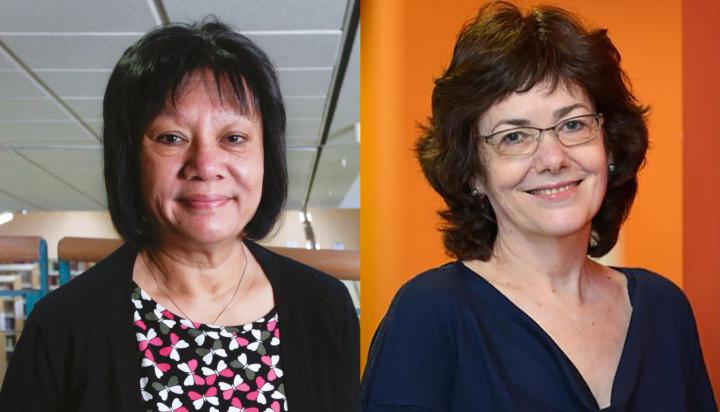
The year kicked off with two of our top female academics being recognised in the Queen’s New Year Honours List. Professor Rowena Arshad, former Head of Moray House School of Education and Sport, was appointed Commander of the Order of the British Empire (CBE) for services to education and equality. Professor Helen Sang, Personal Chair of Vertebrate Molecular Development at the Roslin Institute, was appointed Officer of the Order of the British Empire (OBE) for services to food security and bioscience for health.
Five more members of University staff were recognised in the Queen’s Birthday Honours list later in the year. Professor David Webb, Christison Chair of Therapeutics and Clinical Pharmacology, was appointed CBE for services to clinical pharmacology research and education. Professor Catherine Sudlow was appointed OBE for services to medical research. Her main area of research is stroke. Professor Janette Webb, Professor of Sociology of Organisations, was appointed Member of the Order of the British Empire (MBE) for her services to energy transition in the UK. Also appointed OBE for her services to victims of childhood sexual abuse was honorary staff member Dr Sarah Nelson. Finally, Dr Ian Graham Fotheringham, Managing Director of Ingenza, was appointed MBE for services to industrial biotechnology.
February
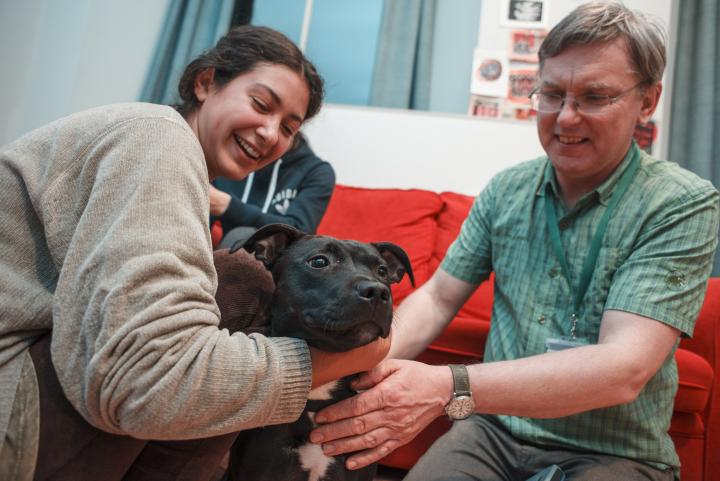
Local initiatives received a boost, thanks to the Edinburgh Local Community Grants scheme. From All4Paws, a student-run vet clinic for the pets of people experiencing homelessness, to the Welcoming Association, a community choir for adult refugees, migrant and minority ethnic communities, support groups received up to £5,000 each in funding to keep their projects going strong.
Over the next few months vital funds were also raised by alumni, staff and supporters for people affected by the pandemic through the Covid-19 Partnerships Fund. Donations reached more than £1 million by the end of summer and were channelled into drug treatment research, as well as providing IT for families in need, emergency food supplies and carer support.
Find out more about the Edinburgh Local Community Grants scheme.
March
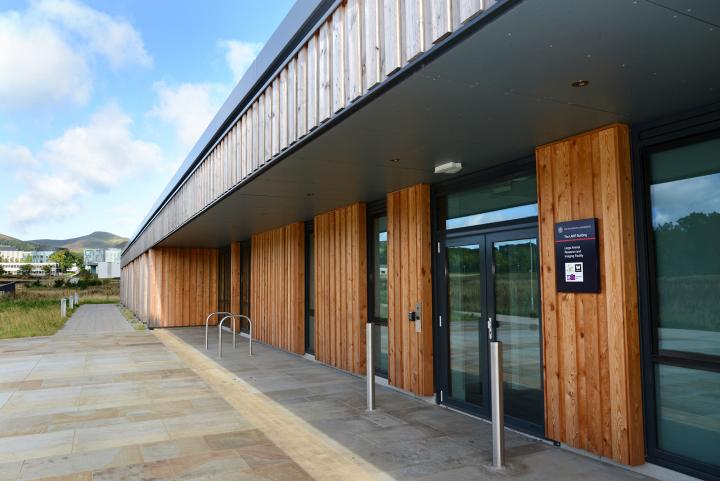
Monday 23 March will go down in history as the day it was announced that the entire nation would go into lockdown. As a result, offices, non-essential shops and schools closed their doors in a bid to suppress the spreading coronavirus. The vast majority of University staff moved to working from home and students transitioned to online learning. It’s hard to believe that before that, March was also a month of new beginnings.
Earlier in the month, the University’s Large Animal Research and Imaging Facility (LARIF) was officially launched. LARIF will improve food security through research aimed at producing livestock that are genetically more resistant to disease, and the development of improved vaccines for animals. Research will protect human health by helping to tackle food-borne infections, creating strategies against antimicrobial resistance and developing treatments for neurological conditions that affect people.
April
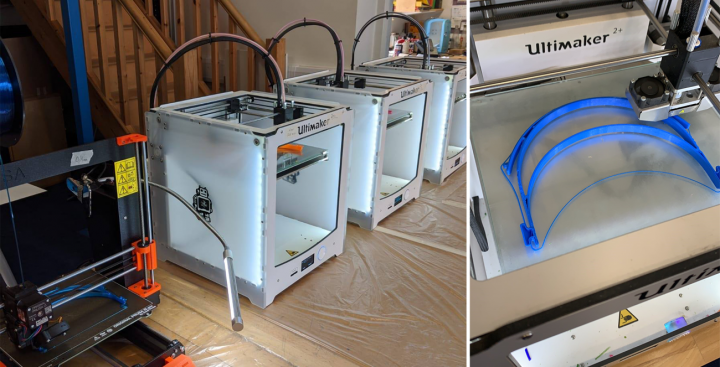
As the pandemic gripped the nation, organisations around the UK came together to support the NHS frontline. Our students joined the effort too. Student start-up Augment Bionics transformed its 3D-printing company from a prosthetic limb developer to a face-shield producer. Thanks to generous donations, the team managed to produce 10,000 mask a week for healthcare workers.
Augment Bionics is one of many start-up and spin-out companies that have been supported by the University’s commercial arm, Edinburgh Innovations (EI). It won first place in EI’s Business Ideas Competition for engineering students and was runner-up for the Social and Environment Award at Inspire Launch Grow 2019.
Watch a video about Augment Bionics:
May

2020 also saw success for other EI supported companies. May saw the launch of SpeakUnique – a University research driven company that develops software to digitally recreate the voices of people with speech-affecting conditions such as motor neurone disease (MND), stroke, cancer of the throat or tongue and cerebral palsy.
Watch a video about SpeakUnique:
Later in the year, EI client Dr Genevieve Patenaude, Senior Lecturer at the School of GeoSciences, won the top challenge prize at Converge, the prestigious entrepreneurial programme for Scottish universities and research institutes, for her start-up Earth Blox. Earth Blox aims to ease access to planetary-scale satellite intelligence, making the study of the impact of deforestation and large-scale disasters and the teaching Earth-observation skills possible without specialist software.
Find out more about Edinburgh Innovations.
June

A digital monitoring system developed by Edinburgh researchers offered users better control of blood pressure than standard care and showed it could be vital for those living remotely and those shielding during the Covid-19 crisis.
The digital system sends patient data over the internet or by text direct to the GP, thus potentially reducing the need for as many appointments at the practice to monitor high blood pressure. However, in the past staff workload and difficulties adapting home results to the surgery’s computing processes have hampered its success.
Researchers at the University worked with 3,200 patients across 75 GP practices in NHS Lothian aiming to improve the system. Scale-Up BP was the result – providing regular summaries of home readings to GPs, which delivers test scores alongside routine lab results. Scale-Up BP has been adopted by the majority of NHS boards in Scotland.
Find out more about Scale-Up BP.
July
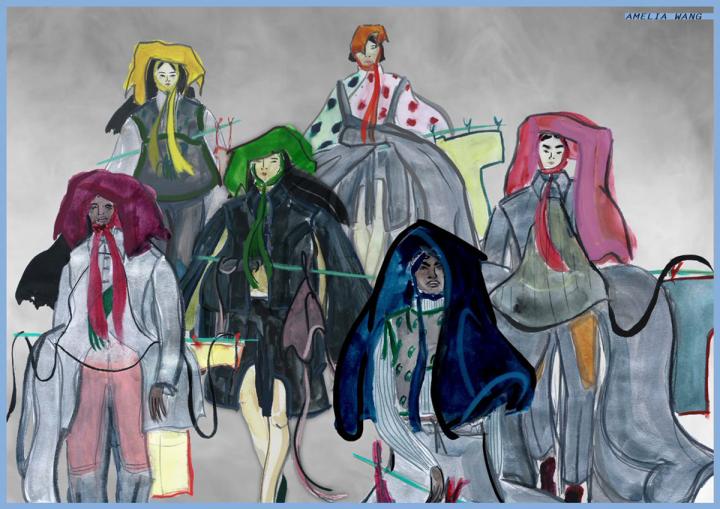
In response to Covid-19 restrictions, Edinburgh College of Art launched its first-ever virtual degree show. With more than 3,000 pieces of media and 400 graduate profiles, the online exhibition included paintings, drawings, architectural models, animated films, photography, textiles, jewellery and interior design.
When the much-anticipated annual physical show was called off due to the pandemic, staff and students came together to think of new ways to deliver the event. The resulting digital gallery was complemented by events including the Scottish Chamber Orchestra performing pieces by music students and a virtual fashion catwalk.
Find out more about the Edinburgh College of Art Graduate Show 2020.
August
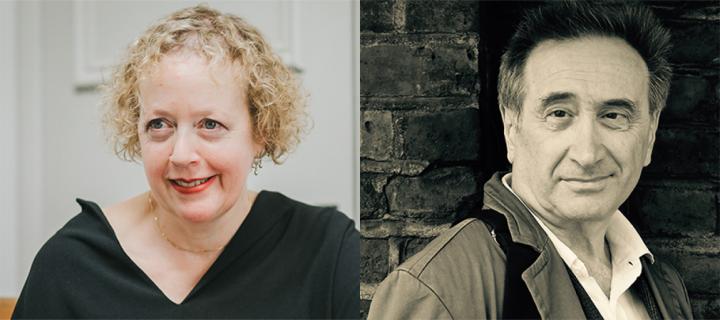
Traditionally it’s the month when Edinburgh hosts some of world’s biggest and much-loved festivals, including the Edinburgh International Festival, the Edinburgh Festival Fringe and the Edinburgh Book Festival. However, this year, the festivals went virtual with hundreds of events, talks, exhibitions and shows.
The University’s James Tait Black Prizes, the winners of which are announced at the Book Festival, made its regular annual appearance. Broadcaster Sally Magnusson hosted the online celebration of the year’s fiction and biographical books in Britain’s oldest literary prizes. George Szirtes scooped the biography prize with The Photographer at Sixteen: The Death and Life of a Fighter, an exploration of the life of his mother, a holocaust survivor. Lucy Ellmann’s fiction prize winner, Ducks, Newburyport, is a thought-provoking stream of consciousness by an Ohio housewife delivered almost entirely in one-sentence.
Watch a video about the biography prize winner:
Watch a video about the fiction prize winner:
Find out more about the James Tait Black Prizes.
September
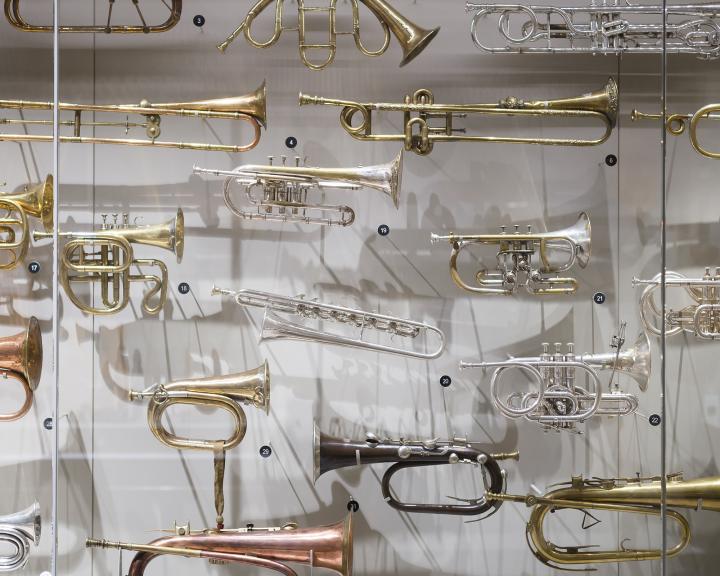
After months of closure during the lockdown, it was a special moment to see the reopening of Scotland’s oldest purpose-built concert venue and music museum to the public. Situated in Old Town, the recently renovated St Cecilia’s Hall is home to the University’s world-class collection of musical instruments, as well as a unique oval-shaped concert room.
Among the collection are items gifted to the University and acknowledged by the Carlyle Circle, which celebrated its 30th anniversary in 2020. The Carlyle Circle was established in 1990 to formally recognise the contribution of people who had pledged to remember the University. It is named after Thomas Carlyle, a prominent thinker and writer of the 19th century and one of the first Edinburgh alumni to leave a legacy to the University.
The anniversary was marked with a online exhibition, displaying 30 treasured objects looked after by the University’s Centre for Research Collections, including musical instruments, books, objects and archives spanning several centuries from around the world.
Find out more about the Carlyle Circle 30th anniversary exhibition.
October
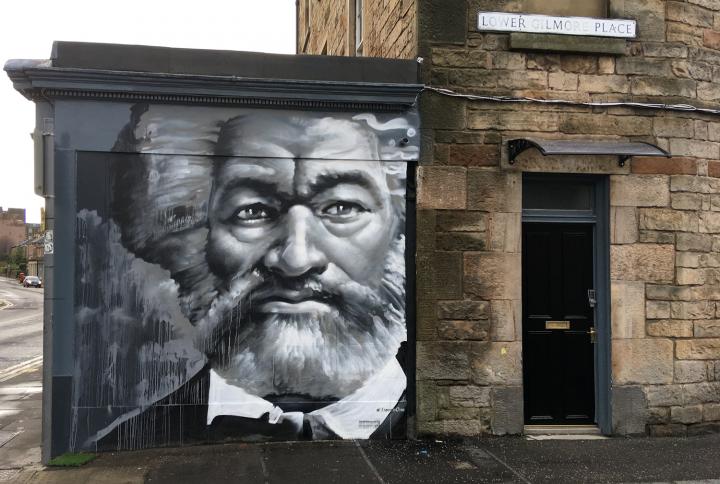
October marked the 10th anniversary of Black History Month and the University community came together to mark the occasion. For the first time, the University’s historic Old College flew the red, black and green Pan African flag, or Black Liberation flag, which has since its inception in the 1920s become a global symbol of Black pride.
Throughout the month RACE.ED – a cross-university network concerned with race and decolonial studies – hosted webinars on topics covering black slavery, reparative justice, social care and environmentalism, while Dr Katucha Bento delivered the fourth Edinburgh Race Lecture, Behind the Rhodes Statue: Empire and the British Academy. The Students’ Association led a programme of events too, which opened with an evening celebrating Black talent at the University.
A Black Lives Matters Mural Trail is available to download on the University's Curious Edinburgh walking tour app, offering people the chance to explore artworks displayed around city created by artists from Black, Asian and Minority Ethnic backgrounds living in Scotland.
Find out more about RACE.ED and the Black Lives Matter Mural Trail.
November

Despite the challenges of the pandemic there were still positive moments of distraction. One of the feel good stories of the year was the winning of The Great British Bake Off by Edinburgh student Peter Sawkins. Peter became the youngest person, and the first Scot, to win the show.
Filming took place over the summer with 20-year-old Peter, who is in his third-year studying accounting and finance, joining his fellow contestants in a bubble before returning to University in the autumn. Peter watched the televised November final with his flatmates, two of whom did not know he had won. He plans to keep up with baking while continuing with his studies.
Peter wasn’t the only member to the University community to find success in a TV competition this year. Alumnus JJ Chalmers wowed watchers with his moves on the BBC’s hugely popular Strictly Come Dancing. The former Royal Marine sustained severe injuries in Afghanistan, but went on to recover and become a gold medallist in Prince Harry’s Invictus Games, and later a sports media presenter. He impressed Strictly’s judges and viewers alike, making it to the quarter final of the competition. And over in Europe, another University student also made it onto primetime TV. Third-year Astrophysics student Paula Espinosa performed on the Spanish version of popular TV singing competition, The Voice.
December
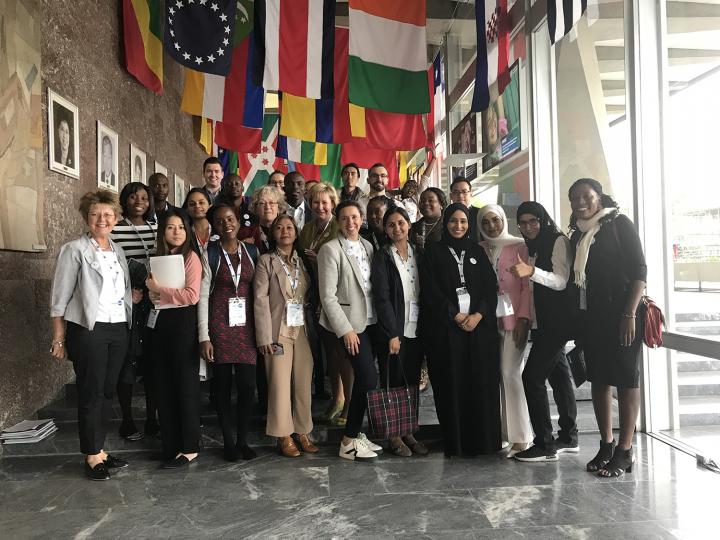
With the breaking news of the roll out of the mass vaccination programme in the UK, 2020 ended with hope on the horizon. Leading up to this point researchers at the University have contributed wholeheartedly to the global effort against the disease. From studying the economic, social and environmental impact of coronavirus to trialling therapies and advising the government, Edinburgh has played its part since the beginning of the pandemic.
A key area of support throughout the health crisis was, and remains, from frontline healthcare workers. The World Health Organization named 2020 the Year of the Nurse and Midwife and throughout the year nurses around the world proved just how invaluable their clinical care skills are. Covid-19 shone a spotlight on the importance of the nursing profession, the largest workforce in the world.
Despite the pandemic putting many planned Year of the Nurse and Midwife celebrations on hold, the Nursing Studies team at the University was involved in a range of collaborations throughout 2020. These included a partnership with the University’s Global Health Academy called Edinburgh Global Nursing Initiative, which looks to work with institutes across the world to strengthen nursing education and contribute to the UN’s Sustainable Development Goals. 2020 also saw the launch of new partnerships with both Harvard and The Burdett Trust looking to strengthen resources available for nurses and midwives, and new scholarships for nurses working in neuro rehabilitation and care were also launched.
Elsewhere, as the year came to a close, researchers at the University announced the discovery of five genes associated with the most severe form of coronavirus. The breakthough could help identify potential treatments for Covid-19. Scientists made the discovery by studying the DNA of 2,700 patients in 208 intensive care units in the UK. Published in prominent science journal, Nature, the findings could increase the protection of the most vulnerable and save lives globally.
Our heartfelt thanks go to all the essential workers, researchers and members of the University community who played their part in providing support throughout 2020. Here's to making the world a better place in 2021.
Read the latest University news and Covid-19 response stories.
Read more Edit supplements.
Photography by Sam Sills, Callum Bennetts, Norrie Russell, Amy Jordison, Marzena Pogorzaly, Jim Stephenson, Jane Kelly/Getty Images, Sarah Lincoln and Nursing Now.

